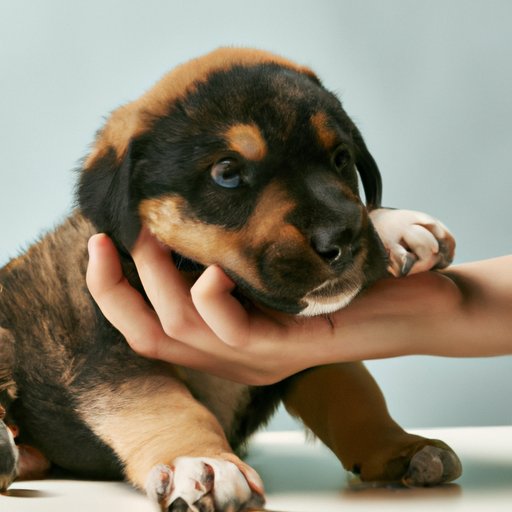Introduction
Bringing a new puppy into your home is an exciting but daunting experience. While puppies are adorable, they require a lot of work and dedication to ensure they grow up healthy and happy. To make sure your puppy has the best start in life, it’s important to understand what’s involved in taking care of them.
A puppy is typically defined as any dog under one year old. Depending on their breed, size, and age, puppies may require more or less attention than others. Regardless of their individual needs, there are some basic concepts all puppy owners should be aware of when it comes to caring for their pup.
Establish a Routine
Creating a consistent schedule for your puppy is essential for their physical and emotional health. Having set times for meals, potty breaks, playtime, and bedtime will help your pup learn the ropes and adjust to their new environment quickly.
The benefits of a consistent routine include fewer accidents inside the house, improved sleep habits, and better behavior overall. It also gives your puppy a sense of security and helps them develop trust in you as their owner.
To create a schedule for your puppy, start by setting aside specific times for meals, potty breaks, and playtime. If possible, try to feed your pup at the same time every day so they can get used to the routine. Make sure to provide plenty of opportunities for bathroom breaks throughout the day, and find ways to incorporate playtime into their schedule as well.
Once you’ve established a routine, stick to it as much as possible. This will help your pup learn the rules and understand what to expect from you. Be patient and understanding if your pup has trouble adjusting to the new routine at first; it may take some time before they get used to it.
Ensure Proper Nutrition
Proper nutrition is another important aspect of taking care of a puppy. Your pup’s diet should be tailored to their age, breed, and activity level. Puppies need high-quality food that provides them with the energy and nutrients they need to grow and stay healthy.
When selecting food for your pup, look for one that is specifically designed for puppies. Avoid generic brands that don’t provide the necessary vitamins and minerals for growing puppies. Look for food that contains real meat as the first ingredient, and avoid foods with fillers or artificial ingredients.
Puppies should be fed two to three times a day, depending on their age. Young puppies (under 4 months) may need to be fed four times a day. As your pup gets older, you can gradually switch them to one meal a day. Be sure to follow the instructions on the packaging for portion size and frequency.
Monitor Health
It’s important to keep an eye on your pup’s health as they grow. Regular vet visits and vaccinations are essential for maintaining your pup’s wellbeing. Most puppies need several rounds of vaccinations during their first year of life to protect them from common illnesses and diseases.
In addition to regular check-ups, watch out for signs of illness in your pup. These can include vomiting, diarrhea, loss of appetite, lethargy, or changes in behavior. If you notice any of these symptoms, contact your vet right away.
Socialize
Socializing your pup is another important part of taking care of them. Introducing your pup to new people and animals helps them become comfortable in different environments and prevents them from becoming overly fearful or aggressive.
When introducing your pup to new people, allow them to approach and sniff the person before petting them. This will give your pup a chance to become familiar with the person before interacting. When introducing your pup to other animals, do so in a controlled environment such as a dog park or supervised playgroup. This will give both animals a chance to become accustomed to each other in a safe space.
You can also introduce your pup to new environments by taking them on walks or car rides. This will help them become accustomed to different sights and sounds and get used to being around strangers. The more you expose your pup to new experiences, the more confident and comfortable they will become.
Provide Mental Stimulation
Mental stimulation is just as important as physical exercise for puppies. Giving your pup interactive toys and puzzle games can help keep them engaged and prevent boredom. Obedience training is also a great way to stimulate your pup’s mind and teach them important commands.
Interactive toys can help keep your pup occupied and reduce destructive behaviors. Puzzle games such as treat dispensers or hide-and-seek toys can help your pup learn problem-solving skills and keep them entertained for hours. Obedience training teaches your pup to follow commands, which can help improve their behavior and strengthen the bond between you.
Conclusion
Taking care of a puppy requires patience and dedication. Establishing a routine, ensuring proper nutrition, monitoring health, socializing, and providing mental stimulation are all important aspects of caring for a pup. By following these tips, you can give your pup the best start in life and ensure they grow up healthy and happy.


